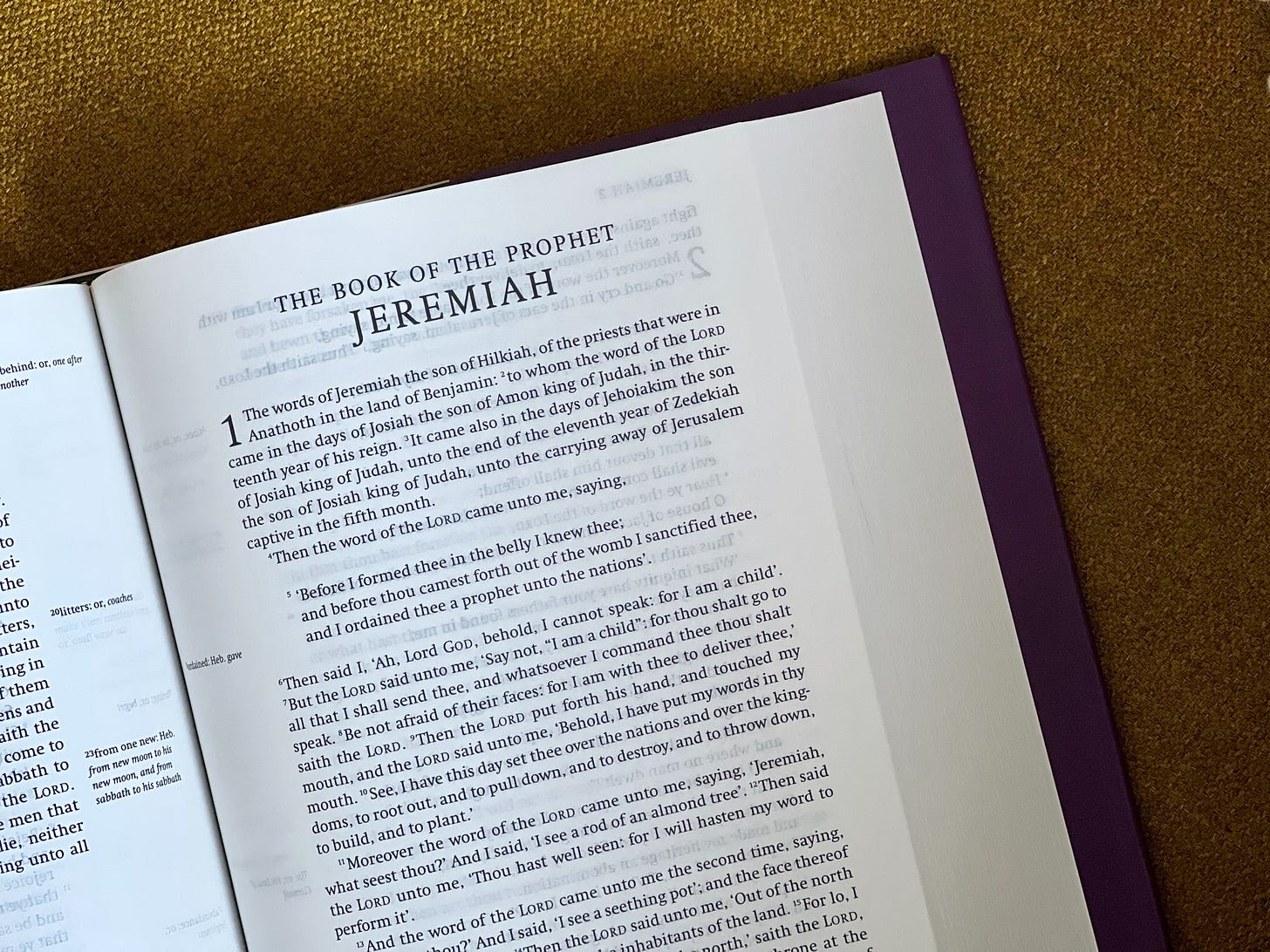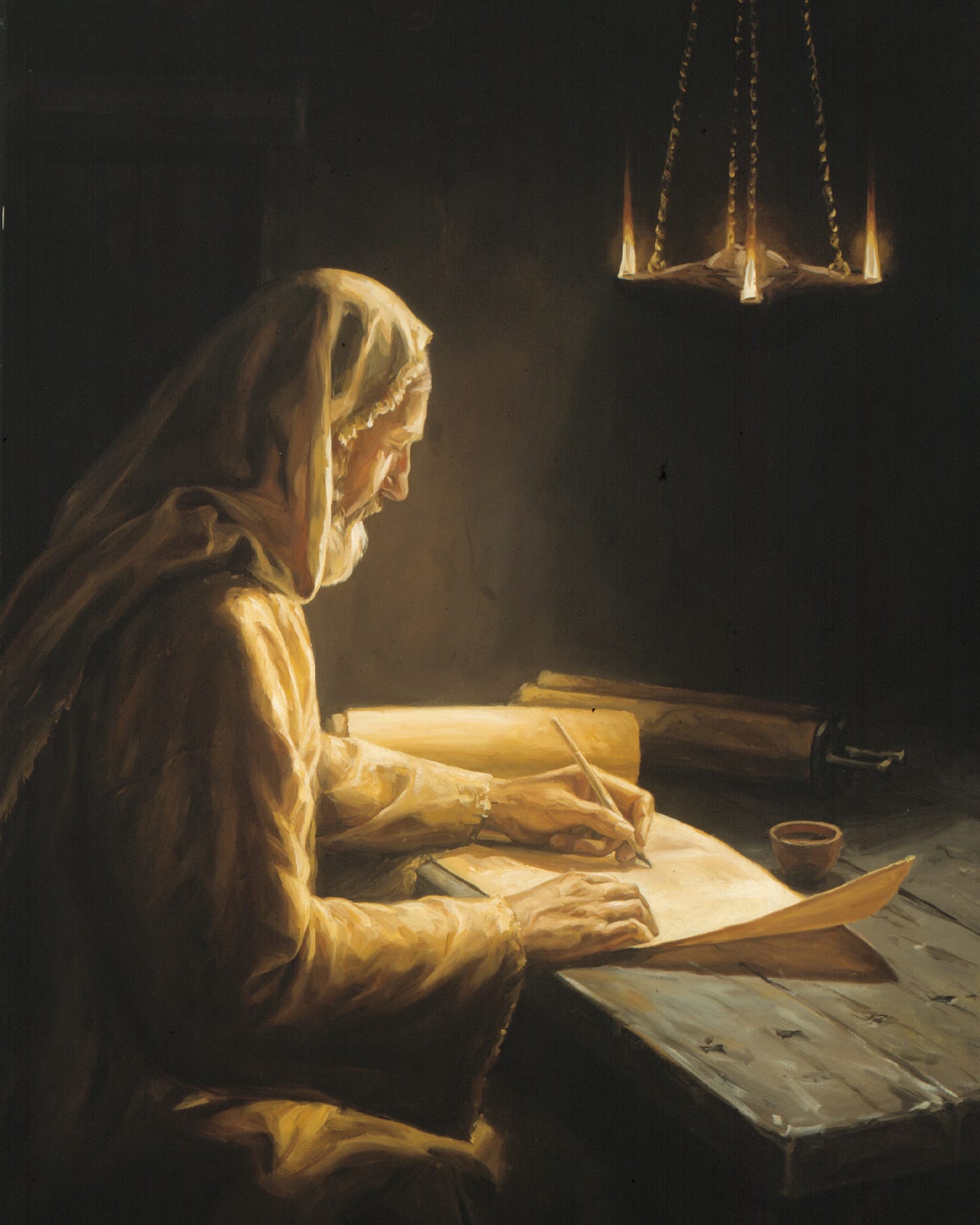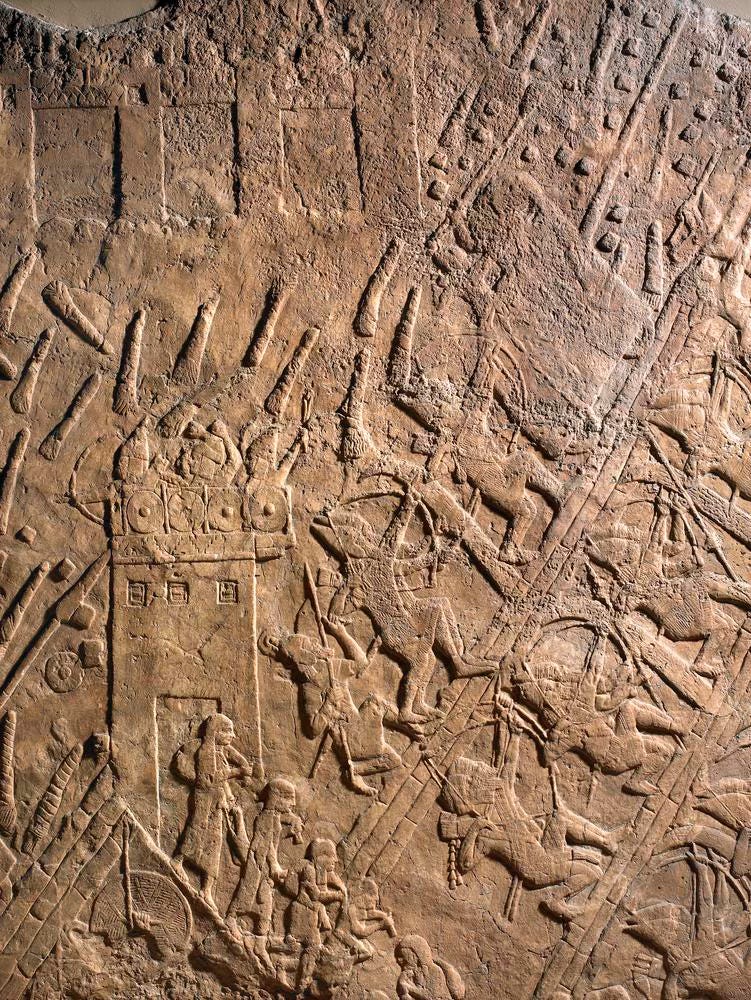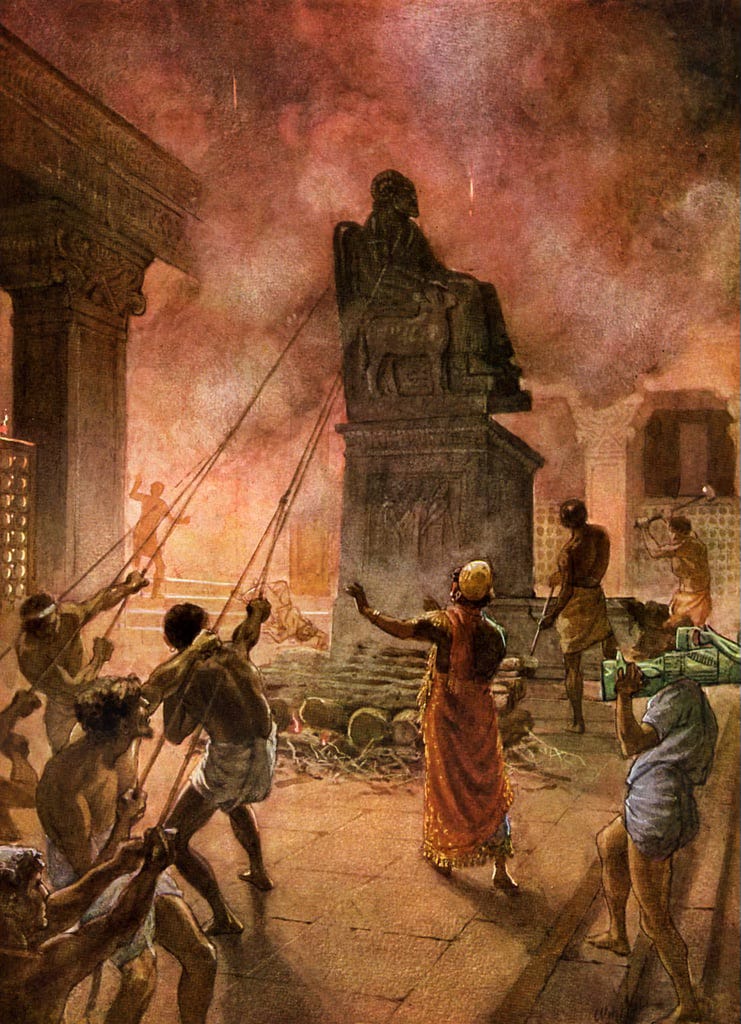The Prophets preached some of the greatest sermons in Scripture, yet they are often skipped over because some deem the prophets difficult to understand. Jonah may stand as today’s most familiar prophet, possibly because his entire book is a single historical story. However, most knowledge of the other prophets comes from famous verses, which are often isolated, leading to a neglect of their larger context. For example, Isaiah 9:6 is powerful and wonderful (and unfortunately, rarely read outside the Christmas season), but this verse is even greater when understood within its context.
These preachers hold a wealth of wisdom and spiritual direction, facing times much like our own, they were God’s mouthpiece to humanity. They show us that we can live righteously in unrighteous conditions, that sin will destroy but God’s mercy can restore, and that God always has a plan, therefore, trust in Him, not the world. Furthermore, the prophets had zeal in their bones for God’s holiness and righteousness, and constantly called the people back to Godly obedience.
So, how did God’s preachers fulfill their task? After the ‘Word of the Lord’ came to them, the prophets wrote, spoke, and even physically displayed God’s message. They used history, illustrations, and poetic comparisons, which may sound foreign to us but can bring rich understanding if time is taken to study their message.
Here are a few tips on how to read the Prophets more efficiently…
Definition: What is a prophet? It is ‘one who speaks in place of another.’ A prophet speaks for God to the people and vice-versa. In today’s Christian culture, prophets are thought to predict the future and perform miracles. This is not a completely Biblical concept. Prophets in Scripture were primarily preachers and God would use miracles and prediction to validate His preachers and message (cf. Ex. 7:1-2, Deu. 18:18). John the Baptist did not perform miracles and never predicted the future like Isaiah or Daniel, but Jesus still called John the greatest prophet (Lk. 7:28). Prophets were preachers who arose in times of crisis or transition, with a primary job of calling the people back God through repentance and trust.
The historical and theological contexts:
Historical: Possibly, the most significant way to understand a prophet is to understand his context. The ‘who, why, where, when, what, etc’ questions should be answered when diving into any Biblical book, especially the prophets. History does not have to be intimidating or boring, it should be enlightening.
For example, when it is understood that Assyria was the dominant empire for centuries and that they were brilliant, cruel, and often unstoppable, then it makes sense why Hezekiah was afraid of them (Isa. 36-37), why his wicked father loved them (2 Kings 16 & Isa. 7), why Jonah did not want them to receive God’s mercy (Jonah 4:2), why they were used to judge Israel (2 Kings 17 & Isa. 10), and how God would ultimate defeat them (Isa. 10 & 37).
Understanding the history and the Biblical timeline can also assist in interpreting the overall Biblical story. Jeremiah preached in Jerusalem leading up to the Babylonian invasions, during those invasions Daniel and then Ezekiel were taken to Babylon. Jeremiah remained and preached in Judah, while Daniel and Ezekiel preached to the exiles in Babylon. When the Babylonian Captivity was over, Zechariah and Haggai ministered to the Jews who returned to Jerusalem. Each prophet displayed God’s plan for His people and humanity as a whole, and by analyzing the historical context we can gain greater theological comprehension.
Theological: Each prophet had a special message from God that spoke to their immediate context and to future readers as well. Isaiah spoke to Judah in his day (Isa. 1-39), Jews in Exile (Isa. 40-55), and to Jews returning from Exile (Isa. 56-66). (To understand how these elements connect to God’s plan, see the outline of Isaiah provided below.) Painting with a broad brush, take the Books listed in the paragraph above and follow the theological progression:
Jeremiah: Sin brings destruction and eventually, if there is no repentance, Exile.
Daniel and Ezekiel: Exile has come, now repent, wait, and trust in God’s plan for a glorious future. Look back at the other prophets to know how you got in Exile, but also how God will bring restoration.
Zechariah and Haggai: God has brought restoration but you do not want another Exile, so this is how you should live in the Land, still waiting for God’s glorious plan to come to fruition.
All of these prophets look forward to God’s plan of salvation, in regard to the work of Jesus and God’s everlasting kingdom.
Author and Audience: similar to studying the historical context, it is essential to identify the author and audience or first readers of the Book. By understanding the preacher and hearers then one can comprehend the original intent of the message. If you received a text message from an unknown number, and the message was not intended for you (thus, the author and recipient are unknown), then the message will not be clear. We cannot apply the Bible to our lives properly if the content is not understood correctly.
The Pentateuch: the first five books of the Bible are called the Torah, Pentateuch, and/or the Law. The entire Bible is built on the Law, therefore, if one desires to understand Scripture more clearly, the prophets in particular, then immersion in the Law is required. The prophets quoted or referenced the Pentateuch constantly: The Law gave the Israelites their identity, showed them their history, and also pointed toward their future. The Law showed Israel what God’s order in society should look like and gave them the commands that would guide them to justice, order, and divine peace. For example, read Leviticus 26, then start reading the prophets and you will find the preachers condemning Israel for breaking God’s covenant and calling the wicked back to repentance. You will also notice Leviticus 26 speaks of Exile for disobedience but restoration upon repentance.
Genre: A prophet’s sermon could house poetic imagery, historical references, and various strategies of style. All of these elements will require the Bible student to dig for proper interpretation, but the results will be rewarding.
Poetic or symbolic imagery: Isaiah stated that Jerusalem would be like a “lodge in a garden of cucumbers” (Isa. 1:8). This depicts a temporary structure, used only in harvest seasons, which would be abandoned and broken down during the winter months. The idea is that Jerusalem would be abandoned, broken down, and become desolate.
Historical: Jeremiah records the event of Jerusalem’s destruction, as well as the events before and after the devastation. Throughout the history, Jeremiah inserts the sermons and challenges he gave to God’s rebellious people. Jonah and Hosea’s stories are famous examples of teaching through historical events.
Strategies and style: Bible students must analyze how the prophet is writing. The prophet may ask questions on behalf of God or the people, he may use irony, sarcasm, lamentation, or sing a song of praise.
Isaiah and Ezekiel: The tips listed above will assist in reading the prophets chapter by chapter. In this section, there are two outlined examples of how to approach an overview of a prophetic book. Gaining the ‘big picture’ will allow one to perceive how the prophet’s message fits into the Bible as a whole. The prophets were always pointing to where humanity was headed, sin has a destination but so too does following God’s plan.
Isaiah:
1-5: The problem—Israel’s sin and backsliding. Due to their sin, God will send Israel into Exile.
6: the solution—God’s redemptive work. Israel needs to experience what Isaiah experienced: a Holy God and the salvation of that Holy God.
7-12: How God will bring salvation. Through a child who will be empowered to be God’s King over God’s people. The fearsome enemy will be conquered and the Kingdom of God will last forever.
13-23: the wicked nations will be judged and God’s people will be saved. In fact, some of these nations will turn to God (Gentile salvation)! Therefore, do not trust in these nations or their gods, because they will either be conquered or they will serve you, Israel.
24-27: God’s work at the End. The evil worldly city (representing the entire world system that opposes God) will be destroyed, never to rise again, but God’s righteous city will be saved and shall stand forever. Death shall be defeated, the Serpent shall be conquered, God will set a banquet for His people, and the resurrection will bring the dead to life.
28-35: Trust in God, not those that are doomed for destruction. When God comes to rebuild the Kingdom, He will open blind eyes, and heal the deaf and lame (blindness and deafness had been Israel’s problem-cf. Isa. 6:9-10).
36-39: Hezekiah lives out the lessons from 1-35. When he trusts in God alone then the enemy is defeated. But when Hezekiah strayed from trusting God then trouble comes. However, it appears that 38-39 happened before 36-37 chronologically, so maybe Hezekiah learned to trust after his failure, and God saved him from Assyria.
40-55: Isaiah now speaks to people far beyond his time period. The readers would have been living in Exile 150 years from Isaiah’s day, and he is writing to encourage them. They needed to know why they were in Babylon, how God would get them out, and that it is God-not idols-that will do this great work. No one in history had ever returned from exile, but God will do a ‘new thing’! God will use a Gentile king (Cyrus) to accomplish His will. However, God does not desire a ‘second exile,’ so more work must be done. The problem was sin, so a heart transformation must take place. Enter the Servant of God, often called the Suffering Servant. He will die on behalf of Israel, bring redemption, and then be resurrected. Through the Servant, many will be made servants (plural!). We will come to find out in the NT, that the King (Isa. 9 & 11) will be the same person as the Servant (Isa. 42, 53, & 61).
56-66: Here we see righteous foreigners, light dawning in Zion, a Divine warrior conquering, and all that was wrong in Is. 1 will be corrected in Is. 66. What brought these amazing things to pass? The work of the Messiah (Isa. 61). At the beginning of the Book, sin had brought destruction and exile, but by the end, God has restored His people, created a new heaven and new earth, and established an everlasting kingdom.
Ezekiel:
Throughout the Book, idolatry and spiritual blindness brought death, then God’s presence leaves the Temple and the City completely. (Recall God’s presence on Mt. Sinai, then He fills the Tabernacle-Ex. 40, then the Temple-1 Kings 8, but now God leaves due to the sins of the people). However, in Chs. 11 and 36-37, Ezekiel prophesies the changing of the heart through the work of the Spirit. The Valley of Dry Bones is a prophecy about Pentecost! (Cf. 37:11 and 14, as well as the context of the previous chapter.) Therefore, although God’s Spirit left the Temple and Jerusalem, He would return to fill and transform men’s hearts. Both spiritual and physical exile will one day come to an end.
At the beginning of the Book, the wicked king is in Exile, but at the end, the righteous Son of David is King ruling over God’s Kingdom. Think about the Book’s progression: sinful Judah in exile, but eventually, they will return home, God will send His Spirit, and God’s King will come to rule over His Spirit-filled people. God’s kingdom will be established and sin will no longer plague the world.
Conclusion: What can we learn from the prophets?
We learn that God is always faithful to His promises and will continue to be faithful. The prophets wrote about events that were fulfilled during the restoration of Jerusalem and in Jesus’ day, but some of their prophesies have not yet come to pass. However, if God kept the ‘first set’ of promises, we know He will keep the ‘second set.’
God will never compromise on sin, but He will always hear a repentant heart. The prophets are often misunderstood as too harsh, as they preach about judgment, but the prophets show us that exile is not God’s final plan. God’s ultimate desire is to restore humanity back to right relationship with Him. However, right relationship cannot come until evil is dealt with, hence judgment is needed and welcome.
It is possible to live righteously in unrighteous times.
Faithfulness is the key to success: Even if there was just one faithful prophet, with no conversions and constant opposition, the message is still worth preaching and living.
We are waiting for God’s glorious future: Jesus came once, but He is coming back again! The prophets give some of the greatest descriptions of that Day and His established Kingdom, and to that we say, come quickly.
There are, of course, more that could be said, but not everything can be covered in a blog article. I hope this post has challenged you to dive into the prophets again and glean from their sermons and ministry!
Resources: begin with a good study Bible (I love the Ryrie KJV and the KJV Full Color study Bibles) then add a Bible Dictionary (Nelson’s New Illustrated or New Ungers) and Bible Handbook (Ungers), commentaries should come last.
Two important blogs…












This is a great read!